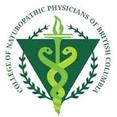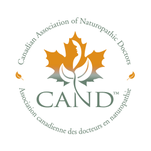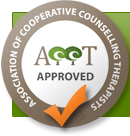Food As Medicine
At Butterfly Naturopathic, we believe that food provides our minds and bodies and with the nutrients and building blocks we need to heal and maintain health. Healthful foods contain unique nutrient profiles that can replenish nutrient deficiencies, strengthen weakened organ systems and heal damaged tissues. The choices we make regarding which foods enter our body can determine our level of health and vitality. If we choose food that is full of vital minerals, vitamins, proteins and healthy fats, we will optimize our health. If we choose food that can cause inflammation and stress on our vital organs, we will diminish our health and vitality.
It is now of utmost importance to look at the way our food is grown and produced. There has been a substantial change in agricultural practices in the last century and a steady rise of chronic disease in the Western world. The majority of food we find in grocery stores today are nutrient deficient. Much of our produce comes from other countries, travelling long distances, and can take a few weeks to arrive on our store shelves. Once picked, the nutrient content of plants diminishes over time, so once that food is available for purchase its nutrient profile has declined to one-half to one-quarter of what it was when first harvested.
Soil quality also plays a large role in a plant’s nutrient content. When food has been “mono-cropped” (only 1 type of food is grown, like corn or wheat), the soil becomes depleted in nutrients. Soil needs a dynamic ecosystem to thrive and provide nutrients for the plants that grow in it. If the soil becomes depleted, the plant has a very slim chance of becoming nutritious.
Research has shown that the heavy use of pesticides and herbicides, and the genetic modification of food has been correlated certain cancers and chronic diseases. The use of genetic modification of our food still requires more research to determine it's safety and yet we still find these products on our store shelves.
Even with these harmful changes in food quality and agricultural practices, food can still be used medicinally with the right knowledge.
A few simple choices that can make a large positive impact on your health and create momentum for agricultural change include:
We are here to help you make smart food choices. Dr. Aaron Wong does regular community talks on this topic. Please join us if you are interested in learning more or book an appointment and learn about how you can make a sustainable eating plan.
It is now of utmost importance to look at the way our food is grown and produced. There has been a substantial change in agricultural practices in the last century and a steady rise of chronic disease in the Western world. The majority of food we find in grocery stores today are nutrient deficient. Much of our produce comes from other countries, travelling long distances, and can take a few weeks to arrive on our store shelves. Once picked, the nutrient content of plants diminishes over time, so once that food is available for purchase its nutrient profile has declined to one-half to one-quarter of what it was when first harvested.
Soil quality also plays a large role in a plant’s nutrient content. When food has been “mono-cropped” (only 1 type of food is grown, like corn or wheat), the soil becomes depleted in nutrients. Soil needs a dynamic ecosystem to thrive and provide nutrients for the plants that grow in it. If the soil becomes depleted, the plant has a very slim chance of becoming nutritious.
Research has shown that the heavy use of pesticides and herbicides, and the genetic modification of food has been correlated certain cancers and chronic diseases. The use of genetic modification of our food still requires more research to determine it's safety and yet we still find these products on our store shelves.
Even with these harmful changes in food quality and agricultural practices, food can still be used medicinally with the right knowledge.
A few simple choices that can make a large positive impact on your health and create momentum for agricultural change include:
- Choosing organic foods whenever possible to reduce toxic exposure to harmful pesticides and herbicides.
- Shopping at farmer’s markets or growing your own produce to ensure you are eating fresh local produce from mineral-rich soil.
- Buying ethical, hormone-free, antibiotic free lean meat to avoid additional hormone and antibiotic intake.
- Reducing your intake of common “mono-cropped” and genetically modified food such as corn, wheat, and soy.
- Ask questions about where your food comes and how it is produced and if you don't agree with it, ask for what you need.
We are here to help you make smart food choices. Dr. Aaron Wong does regular community talks on this topic. Please join us if you are interested in learning more or book an appointment and learn about how you can make a sustainable eating plan.




